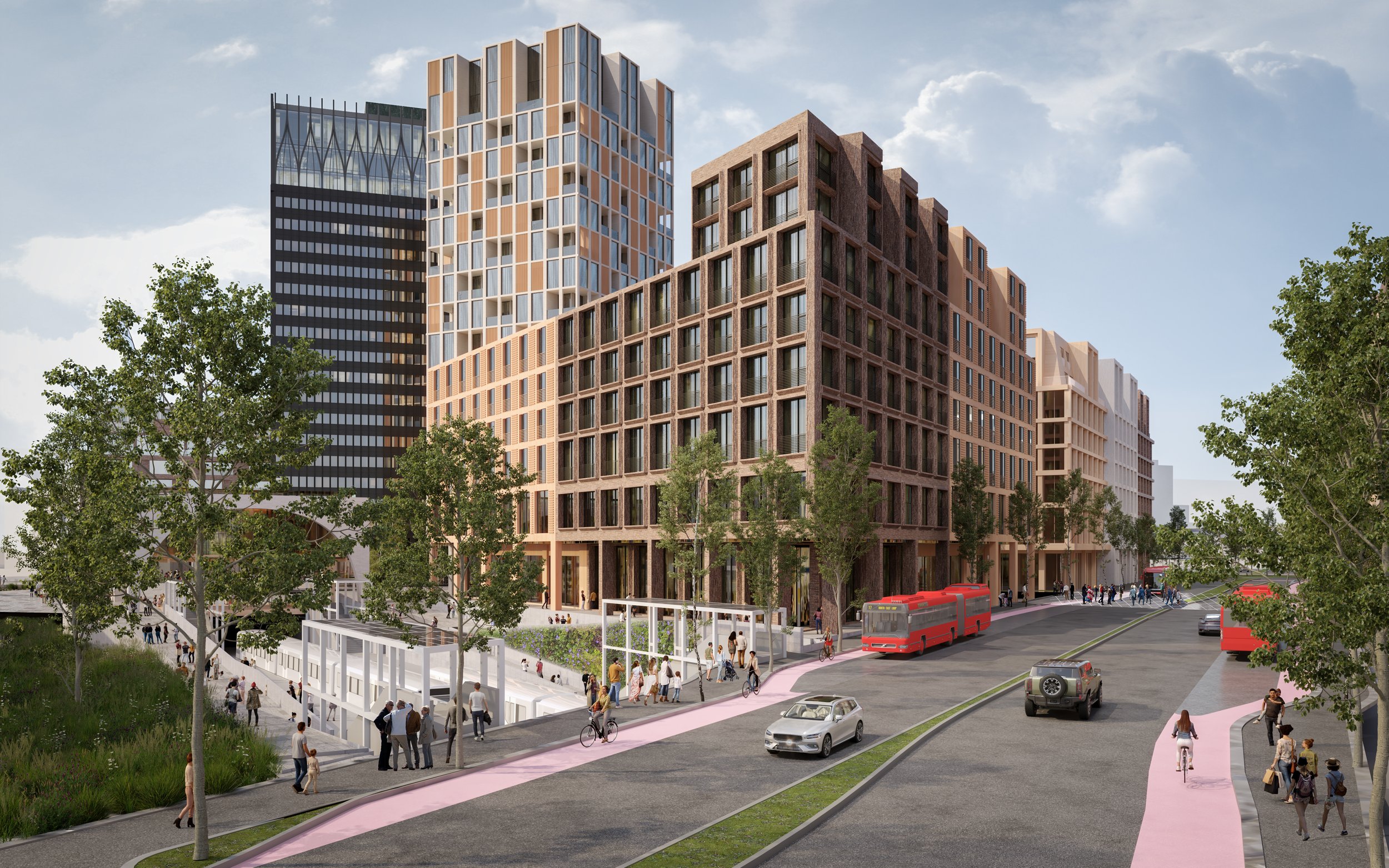Team Civitas/A-lab/Arcgency to prepare the feasibility study for Hovinbyen Sirkulære Oslo
The innovation district, Hovinbyen Sirkulære Oslo, has chosen Team Civitas/A-lab/Arcgency to deliver the feasibility study for the initiative. The study will provide answers on how to create circular, green industry and an attractive city life side by side in what is one of Europe's largest urban development projects.
Represenatives from Team Civitas/A-lab/Arcgency
Team Civitas/A-lab/Arcgency to prepare the feasibility study for Hovinbyen Sirkulære Oslo The innovation district, Hovinbyen Sirkulære Oslo, has chosen Team Civitas/A-lab/Arcgency to deliver the feasibility study for the initiative. The study will provide answers on how to create circular, green business and an attractive city life side by side in what is one of Europe's largest urban development projects.
“We want to become a world-leading innovation district for the circular economy in construction, civil engineering and manufacturing. To achieve this, we must be able to create a radical functional mix that promotes both business development and good urban life - based on circular principles. Team Civitas/A-lab/Arcgency has highly competent resources that demonstrate an impressive ability to reflect on what it takes to realise this ambition”
The development of Hovinbyen as Norway's second innovation district is part of the focus on innovation districts in "Campus Oslo - strategy for the development of the knowledge capital", which was adopted by Oslo City Council in February 2019. The private-public collaboration Hovinbyen Sirkulære Oslo aims to drive new knowledge, solutions and new jobs in the circular economy - particularly in the construction and manufacturing industries. The ambition is to deliver on the UN's sustainability goals, the Paris Agreement and the EU's Green Deal, as well as the municipal plan's goals for climate and the environment.
Hovinbyen is Norway's, and one of Europe's, largest ongoing urban development projects. The area extends over a total of 11 sqm, which corresponds to the size of Oslo city centre within Ring 2. The ambition is to attract 80,000 new residents and create 100,000 new jobs by 2040. Økern, Ulven and Haraldrud will be the engines of development by creating test and demonstration arenas for sustainable urban and commercial development, based on a circular economy.
“Being involved in developing the methods and premises for how we will conduct urban planning in the future is incredibly fun. In concrete terms, this is not so much about buildings, but about thinking circularly in relation to services, expertise and everything we have around us. What does it mean to live and live circularly? “This is not an urban planning initiative, it’s a lifestyle. We have a wide range of expertise that we believe is important to accomplish the task”
INTERNATIONAL WINNING TEAM
Team Civitas/A-lab/Arcgency scored full marks on all counts with their response delivered by a team of leading national and international players in circular economy, sustainability, urban planning, urban development and architecture.
“Team Civitas/A-lab/Arcgency understood the complexity of the assignment and the objectives of the innovation district in the best possible way. They have put together a highly competent team with interdisciplinary resources and the ability to think holistically in terms of urban, business and knowledge development with a particular focus on innovation ecosystems and circular value chains. They also have the best local knowledge of the area’s opportunities and how Hovinbyen Sirkulære Oslo will be a success”
Civitas has project management responsibility for the feasibility study together with A-lab, and works with sustainability, restructuring and property development in some of Oslo's largest development projects such as Lilleakerbyen and Bispevika, where in-house project manager Silje Hoftun was involved in preparing the preliminary study for Hovinbyen Sirkulære Oslo.
A-lab, headed by founder and CEO Geir Haaversen, was the project manager for the feasibility study that confirmed that Oslo Science City could be realised as Norway's first innovation district. Their expertise in developing new attractive urban areas that people are drawn to and thrive in has led them to be involved in the development of huge urban development projects such as Barcode/Bispevika, Lilleakerbyen, Økern and Kabelgaten.
Arcgency is known for its sustainable and innovative urban living solutions in everything from the masterplan for Jernbanebyen, which is set to become Copenhagen's greenest urban area, to Tunellfabrikken, an urban ecosystem of culture and commerce with innovative youth housing in the heart of Copenhagen, not to mention how they have been involved in transforming a series of commercial buildings into Banegården, a city farm with an associated knowledge environment.
The experts include Jack Sallabank from Futurestudios in London, who works with knowledge-based ecosystems and similar innovation districts such as Kings Cross and others, and Mikkel Sørensen, the brain, driver and director of DTU Skylab in Denmark, who has expertise in business development and the development of knowledge hubs and strategies for new jobs. Danish Andreas Gjede is an expert in the development of new entrepreneurship and sustainable business models through incubators, accelerators and educational programmes. Urban Trigger Group from NTNU has concrete experience from Hovinbyen, and has studied many layers of circular systems and how the population's knowledge and expertise can be utilised as a resource.
“The work on the feasibility study will start in early summer and will be carried out in close collaboration with the members of Hovinbyen Sirkulære Oslo, who represent key players and institutions from both the public and private sectors. - We will look at the opportunities that lie in the further development of the innovation district and the steps needed to succeed with the initiative. The final product, which is expected to be ready by the end of the year, will form the basis for further development work”




